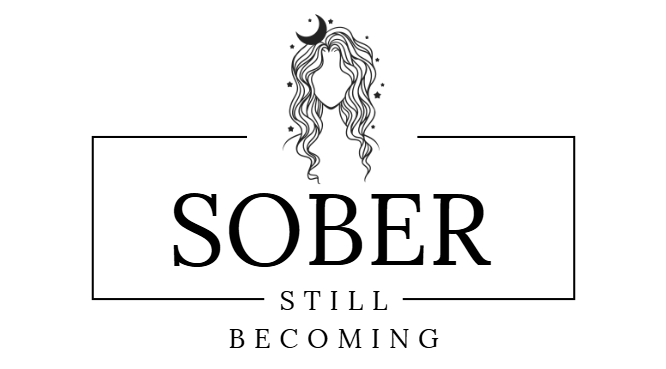Rebooting a Human: Early Sobriety
By: Tasha Truchel
What Early Sobriety Was Really Like for Me
The night of my last drink, I knew I’d finally had enough. I was sick and tired of being sick and tired — physically, emotionally, spiritually. It was my “aha” moment — the kind people talk about but you don’t really believe in until it grabs you by the shoulders and won’t let go.
After nearly losing everything and everyone I cared about, I looked at myself in the mirror and said, “Okay… this can’t be it.” I saw the years ahead of me — blurry and bleak. A cycle of brutal hangovers, daily blackouts, constant shame, and pretending everything was fine when it so clearly wasn’t. That wasn’t living. That was a slow crawl toward self-destruction — and a lifetime of regret for never becoming who I was meant to be, for never living a life outside of the walls of substance abuse and mental chaos.
But here’s the truth I didn’t fully realize in that moment: that “aha” wasn’t just me waking up. According to a mentor at my treatment facility, it was God calling me back to life — His voice breaking through the noise, whispering, “This isn’t where your story ends.”
I fought that idea — hard. I remember thinking, “Oh, okay, sure thing, whatever you say, buddy.” After all, I’d been deep in alcoholism (and then some) for years, and nothing about that moment felt explainable. But looking back now, I know it was grace. Because when the pain finally becomes too heavy to carry, something inside you shifts — and that’s often when your higher power finds a way in, however you come to understand it.
So I stopped. And then the real work began — not just the work of staying sober, but of rebuilding my life and rediscovering what spirituality meant to me. That moment in the mirror wasn’t the end. It was the beginning.
Those First 30–60 Days
The first two months of sobriety? Sort of unhinged. Not in a chaotic, party-girl way — more in a I’m extremely emotional kind of way. I felt like I was walking around with an open wound. Vulnerability was my full-time job. Shame and guilt made regular guest appearances. And every emotion I had stuffed down with vodka and denial came bursting through the door like they’d been waiting for their chance to appear.
I had to relearn how to be a person — how to sit with myself, how to talk to other humans, how to not bolt out of the room the minute things got uncomfortable. Internally, it was messy. And humbling. And kind of beautiful in the weirdest way.
My sponsor at the time told me, “Acceptance is the key.” The phrase landed somewhere in me, and over time, it started to make more sense.
What Helped
For me, treatment saved my life. No phone or no social media. Just me, my thoughts (yikes), and some of the most transformative group sessions I’ve ever experienced.
I showed up to AA/NA/CA meetings six days a week while in treatment, even when I wanted to hide under a blanket and binge true crime. I got a sponsor early on, started step work, journaled daily, and tried to pray — which honestly felt like writing awkward letters to a pen pal I hadn’t met yet.
But things began to shift. I started feeling better — not amazing, but less awful, and that was enough to keep me going. The fog lifted just enough for hope and faith to slip in.
Also key: A good support system? Life-changing.
And then there was the second step:
“Came to believe that a Power greater than ourselves could restore us to sanity.”
Yeah… about that. I fought this one hard. I didn’t like the idea of giving up control — mainly because I was still under the illusion that I had any. What I’ve learned since then is:
Control is for the ego — and it’s basically just the universe’s way of letting you exhaust yourself.
Letting go felt like jumping without a parachute. Turns out, it was more like learning to float.
Things I’d Tell Day-One Me
If I could sit beside that early version of myself, I’d say:
Just show up. Even when you feel weird, tired, or dramatic. Especially then.
Surrender isn’t weakness. It’s freedom.
The root of all suffering is attachment — let go of trying to micromanage the universe. It’s not hiring.
Be free from your desire to control every detail. You're not the director, just the actor with a script rewrite.
Let the universe co-author your story. You’re not doing this alone.
Little wins matter. Celebrate the fact that you drank enough water today.
Be kind to yourself. Like, genuinely kind. Not just “self-care bath bomb” kind, but “I’m not going to beat myself up for feeling like a disaster” kind.
If You’re Just Starting Out…
If you’re in early recovery — or even just wondering if maybe you might want to quit drinking or any mind-altering substance — let me say this:
You are not alone.
Asking for help is brave. Choosing yourself is brave. Being honest about where you're at — even if it’s messy and confusing — is brave.
Just keep showing up.
It gets different.
It gets better.
And you get to become someone even more incredible than you imagined.

